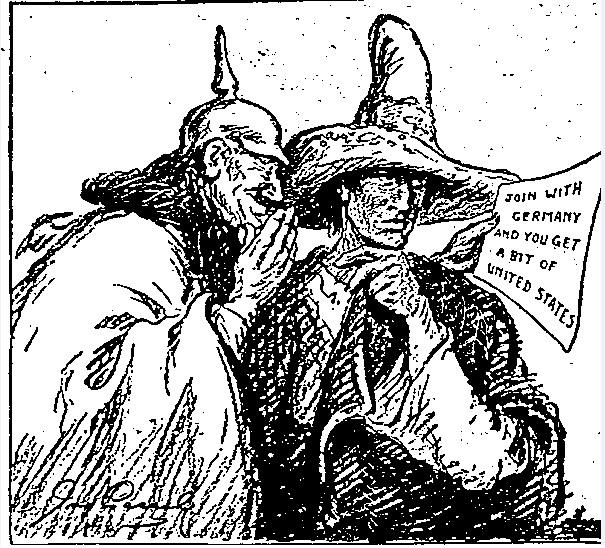Maybe the US has been spying on friends, what else is new?
In WWI Germany tried using a telegram to convince Mexico to join the Central Powers, but the message was intercepted by British intelligence officials spying on US lines.
The latest in the on-going NSA drama is the outrage coming out of France and Germany over allegations that the US has been spying on officials’ phone lines.
On Thursday, Merkel Chancellor said: "Spying between friends, that's just not done." But it’s not the first time a country has spied on its allies, and it’s fair to wager that it won’t be the last.
Paul Gannon, author of several books on intelligence, says the roots of what he calls “the modern eavesdropping revolution” can be traced back to the First World War.
“We can look back to these incidents to work out where we’ve arrived at today. How it all started off,” Gannon said.
In particular, he pointed to the Zimmerman Telegram, a case of friend-on-friend spying that happened in 1917.
At that time the US was still officially neutral in WWI. As part of President Wilson’s peace efforts, the US was allowing Germany to use its cables to send diplomatic messages across the Atlantic. What German Ambassador Heinrich von Eckardt didn’t know was, that when he used the line to send Mexico a telegram asking them to join the Central Powers, British intelligence officials were spying on US lines.
The Brits intercepted and decoded Zimmerman’s message, turning it over to their friends in the US. When the translated telegraph went public, outrage against Germany’s efforts to turn Mexico contributed to the US’s decision to join the war less than one month later. Mexico’s refusal to get involved added insult to German injury.
But if the Zimmerman Telegraph is just one in a long line of historical examples, are European leaders really as shocked and outraged as they appear today?
Gannon thinks it’s likely a case of politics as usual.
“I think that really a lot of what the French and German leaders are saying is aimed at the public, rather than America. Do we need public democratic oversight of what is going on? Yes. Should we be concerned about them listening to one another? No. That is part of it.”
